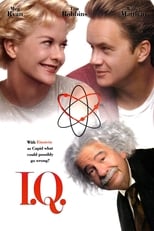View Quote
He told me that it isn't what you do but how you do it that shows whether you are clever or not.
View Quote
Henri Bergson, Creative Evolution (1907), Chapter II.
View Quote
Henri Bergson, Creative Evolution (1907), Chapter II.
View Quote
Henry Wadsworth Longfellow, Hyperion (1839), Book I, Chapter VIII.
View Quote
Here I had tried a straightforward extrapolation of technology, and found myself precipitated over an abyss. It’s a problem we face every time we consider the creation of intelligences greater than our own. When this happens, human history will have reached a kind of singularity — a place where extrapolation breaks down and new models must be applied — and the world will pass beyond our understanding.
View Quote
Howard Gardener, Frames of Mind: The Theory of Multiple Intelligences, (1983)
View Quote
I believe in "intelligence," and I believe also that there are inherited differences in intellectual ability, but I do not believe that intelligence is a simple scalar endowment that can be quantified by attaching a single figure to it—an I.Q. or the like.
View Quote
I grieved to think how brief the dream of the human intellect had been. It had committed suicide. It had set itself steadfastly towards comfort and ease, a balanced society with security and permanency as its watchword, it had attained its hopes—to come to this at last. Once, life and property must have reached almost absolute safety. The rich had been assured of his wealth and comfort, the toiler assured of his life and work. No doubt in that perfect world there had been no unemployed problem, no social question left unsolved. And a great quiet had followed. It is a law of nature we overlook, that intellectual versatility is the compensation for change, danger, and trouble. An animal perfectly in harmony with its environment is a perfect mechanism. Nature never appeals to intelligence until habit and instinct are useless. There is no intelligence where there is no change and no need of change. Only those animals partake of intelligence that have to meet a huge variety of needs and dangers.
View Quote
I not only use all the brains that I have, but all that I can borrow.
View Quote
I once spoke to a human geneticist who declared that the notion of intelligence was quite meaningless, so I tried calling him unintelligent. He was annoyed, and it did not appease him when I went on to ask how he came to attach such a clear meaning to the notion of lack of intelligence. We never spoke again.
View Quote
I'll call "Society of Mind" this scheme in which each mind is made of many smaller processes. These we'll call agents. Each mental agent by itself can only do some simple thing that needs no mind at all. Yet when we join these agents in societies—in very special ways—this leads to true intelligence.
View Quote
In short, intelligence, considered in what seems to be its original feature, is the faculty of manufacturing artificial objects, especially tools to make tools, and of indefinitely urging the manufacture.
View Quote
Instinct perfected is a faculty of using and even constructing organized instruments; intelligence perfected is the faculty of making and using unorganized instruments.
View Quote
Intellect
View Quote
Intellectual
